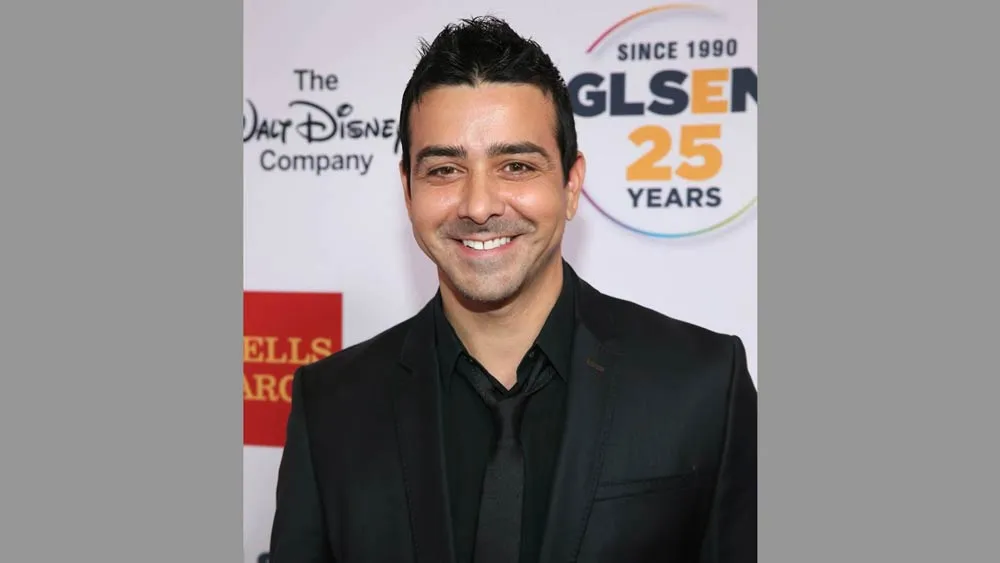October 12, 2013
Fight Continues Over Trans Student Law
Kilian Melloy READ TIME: 7 MIN.
Anti-trans activists are continuing to fight against a new California law designed to support transgender students, and the woman behind a proposed ballot measure told the Bay Area Reporter that she is not a homophobe.
In late August, Secretary of State Debra Bowen announced that Karen England, executive director of the Capitol Resource Institute and its affiliated Capitol Resource Family Impact, has a month - until November 10 - to submit at least 504,760 valid signatures to put their attempt to repeal Assembly Bill 1266 on the state ballot next year.
AB 1266, which Governor Jerry Brown signed into law August 12, aims to make sure that transgender youth can fully participate in all school activities, sports teams, programs, and facilities that match their gender identity.
Gay Assemblyman Tom Ammiano (D-San Francisco) authored the law, which is the first of its kind in the country and goes into effect January 1.
In a recent call with reporters, members of the coalition backing the new law appeared cautiously optimistic that the "fringe hate group," as one member called England's organization, would fail in its efforts. Backers of AB 1266 have been reluctant to fight for the bill too publicly, fearing that they would just draw more attention to the anti-trans groups' efforts.
But that may be changing.
"Recent developments put us on higher alert," said John O'Connor, executive director of Equality California.
In late August, just after the bill's opponents got clearance from the secretary of state, Proposition 8 mastermind Frank Schubert "announced he is providing strategy for the campaign," said O'Connor.
During the September 27 conference call, O'Connor said he and others "got a little bit more concerned" as the National Organization for Marriage announced its involvement in September. NOM was one of the main supporters of Prop 8, the law passed by California voters in November 2008 that made same-sex marriage illegal in California. In June, the U.S. Supreme Court essentially voided the law, and same-sex marriages were allowed to begin in the state almost immediately. Schubert's consulting firm was widely credited with creating effective ads for the Yes on 8 campaign.
"We're still not overreacting, but we haven't underestimated," said O'Connor. "We've been watching very carefully" and looking for signature-gathering activity.
A hotline has been set up for people to report signature collectors, but "we've received no responses to that, despite broad promotion of the hotline," he said. He also indicated there's been no sign of significant amounts of money coming in. AB 1266's backers estimate the opponents will need $1.5 million to $2 million for their campaign, said O'Connor.
Tax-Exempt Status is Questioned
Questions about Capitol Resource Institute's status as a tax-exempt organization have also arisen. As of Wednesday morning, October 9, the IRS website said CRI's tax exemption "was automatically revoked for its failure to file a Form 990-series return or notice for three consecutive years."
However, the site also says, "The information is not necessarily current as of today's date. Nor does this automatic revocation necessarily reflect the organization's tax-exempt or non-exempt status. The organization may have applied to the IRS for recognition of exemption and been recognized by the IRS as tax-exempt after its effective date of automatic revocation."
The revocation date - the effective date on which the organization's tax exemption was automatically revoked - is listed as February 15, 2013. The revocation posting date - the date on which the IRS posted notice of automatic revocation on its website - is July 8, 2013.
In an interview last week, England, CRI's executive director, said, "Our status has not been revoked." She said the organization's status has been "reinstated" and "it's a matter of paperwork."
"We have filed all of our taxes, and the ones [the IRS] claimed hadn't been filed, we have the return receipt that they have them." She said her group's accountant, who has the receipt and also has power of attorney, has been on the phone with the IRS "nonstop."
The B.A.R. repeatedly requested that England provide the receipt.
"I'll consider it, but I don't know why I've got to prove to [the reporter] that we've taken care of it when we have. ... I can't help it if the IRS takes a while and they lag," she said.
England also refused to provide the tax documents themselves.
"I'm sure within the next couple of weeks it will all be public to everyone again," she said. She couldn't say exactly when her group was notified of the problem with the IRS "but it was months ago."
During the conference call, reporter Karen Ocamb said that the state Franchise Tax Board had informed her that CRI's tax exempt status "had been revoked, but it has now been revived and is active."
Franchise Tax Board spokeswoman Denise Azimi told the B.A.R. October 2 that CRI has "a tax-exempt status. They're in good standing."
Ocamb said the IRS told her that CRI's tax-exempt status had not been reinstated, and was "still revoked."
The IRS site instructs people to call a toll-free number to check whether the IRS currently recognizes an organization as tax-exempt.
When the B.A.R. called that number last week, a recording referred to the federal government shutdown, saying, "Due to the current budget situation, all IRS offices are closed. We will resume normal operations as soon as possible." Spokespeople for the IRS were also unavailable due to the shutdown.
The secretary of state's website lists CRI as an active business but lists CRFI as "suspended." The Franchise Tax Board suspended that group in 2010 for having an unpaid balance of $176.18, according to Azimi.
England refused to discuss Schubert or the signature gathering campaign, and referred to the Privacy for All Students coalition, saying, "there's a whole coalition" backing the effort, and "I don't know why you're calling me" about it.
She said the signature gathering campaign is "an entirely separate issue" from CRI's tax-exempt status and she wouldn't discuss that campaign on the phone that she used to call the B.A.R. on Wednesday.
The B.A.R. called a different number that England provided. A message left at that number wasn't returned.
Policies Already on the Books
Supporters of AB 1266 pointed out that the major components of the bill are already in effect in various school districts.
"Many school districts and schools have had exactly this kind of equal access policy in place for years now," said Ilona Turner, legal director of the Transgender Law Center. She added that the new law "essentially restates existing anti-discrimination law," which says that transgender students, like all students, "have to be provided with a safe and supportive school environment where they can succeed."
Elizabeth Gill, staff attorney with the American Civil Liberties Union, said that repealing AB 1266 "would not actually change underlying California law." Federal law would also continue to prohibit discrimination, she said.
Gill said the "only effect" of undoing AB 1266 would be "to cause confusion," and she predicted "a number of lawsuits against school districts" would be filed in order to get them to comply with existing law.
AB 1266 "is important as a restatement, and to make clear to school districts exactly what their obligations are," said Gill.
In late September, Ashton Lee, a transgender high school student from Manteca, California and his mother, Catherine Lee, filed a complaint against CRI and Capitol Resource Family Impact with the state attorney general requesting an investigation.
Among other concerns, the Lees' letter to the attorney general says, "We have come to find out that both organizations have had their status revoked by the IRS and both are listed on your web site as delinquent. ... Their web site continues to solicit contributions and for CRI it continues to state that the contributions are tax deductible."
Although the CRI website does say that, a link provided in at least one Privacy for All Students email leads to a form that says contributions to the coalition "are not deductible as charitable contributions for federal or state income tax purposes."
England said she wasn't familiar with the Lees' complaint.
O'Connor said the coalition backing AB 1266 "would be the launching pad from which a campaign would come together to defend the law" in the "unlikely" case the anti-gay activists get their referendum on the ballot. He said the effort to keep AB 1266 in place would "for sure" cost "millions and millions" of dollars.
The odds are against efforts to challenge the law. England and others made similar attempts in recent years to repeal Senate Bill 48, which is known as the Fair, Accurate, Inclusive, and Respectful Education Act and requires that California school students be taught about the historical contributions of LGBT Americans.
That effort was unsuccessful, as anti-gay activists appeared to have trouble raising money to hire paid signature gatherers, which is typically a key step in putting initiatives on the ballot.
During the conference call, Geoff Kors, senior legislative and policy strategist for the National Center for Lesbian Rights, pointed to CRI's "long history" of failure and said, "They're simply a hate group, and anyone who supports them in their efforts needs to know they're supporting an extreme anti-LGBT hate group."
Kors added that all of CRI and NOM's efforts "are designed to spread lies and put money in the pockets of anti-LGBT extremists."
When the B.A.R. asked England why she's such a homophobe, she said, "Honest to goodness. Would you define that?"
Told that the term was used because she's taken every opportunity to work against gay people, she indicated she works against "policies," not individuals.
It's hard to imagine what, other than homophobia, could motivate England's work. When that notion was shared with her, she said, "You're making assumptions. I must be a homophobe because I actually think all students deserve privacy when they're in different facilities, and a girl shouldn't have to be forced to shower physically with a boy in the same shower. That makes me a homophobe."
England refused to say whether she's heard specific reports of boys going into girls' showers or locker rooms. She said the reporter was "antagonistic, name-calling, and intolerant."
Kilian Melloy serves as EDGE Media Network's Associate Arts Editor and Staff Contributor. His professional memberships include the National Lesbian & Gay Journalists Association, the Boston Online Film Critics Association, The Gay and Lesbian Entertainment Critics Association, and the Boston Theater Critics Association's Elliot Norton Awards Committee.




